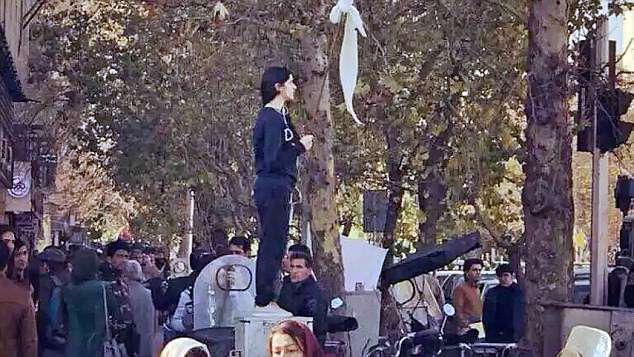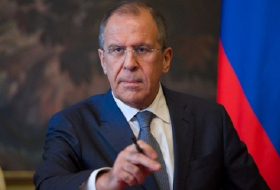The 31-year-old was arrested after she took off her headscarf and held it in the air while standing on a pillar box in central Tehran last month.
A video showing her calmly waving her white hijab tied to a stick above the crowds in the Iranian capital went viral on social media.
Witnesses say the mother-of-one, was arrested shortly after her protest on December 27 and taken to a detention center with her 20-month-old daughter.
Several eyewitnesses said that law enforcement officials arrested the woman on the spot, and transferred her to a nearby detention center known as Kalantari 148, according to Amnesty International.
Today, Iranian journalist and human rights campaigner Masih Alinejad tweeted that she had been released from prison, citing friends.
'The woman with the white shawl has been freed, according to her friends.'
Ms Alinejad is the founder of the White Wednesdays and My Stealthy Freedom movements, which fights compulsory hijab in Iran.
Thousands of social media users shared messages of support after her disappearance, dubbing her the 'Girl of Enghelab Street' after the area in central Tehran where she staged the protest.
Iranian activists started a Twitter campaign using the hashtag #WhereIsShe, demanding that the government reveal what happened to her.
The campaign eventually went global both on and offline, with protesters at the recent Women's March in the U.S. waving placards with the slogan.
The woman, who MailOnline is choosing not to name, was protesting Iran's Islamic law, which requires women to wear a headscarf and long clothes that cover the arms and legs.
Breaking the rules can bring fines of up to 500,000 rials ($12) and up to two months in prison.
President Hassan Rouhani, who came to power in 2013 promising a more moderate stance, has previously said it is not the job of the police to enforce religious rules such as those forcing women to cover their hair.
But in April 2016, officials said there were 7,000 undercover morality police reporting on things like 'bad hijab' - a blanket term usually referring to un-Islamic dress by women.
Figures are rarely given, but Tehran's traffic police said in late 2015 they had dealt with 40,000 cases of bad hijab in cars, where women often let their headscarves drop around their necks.
These cases generally led to fines and a temporary impounding of the vehicle.
The Daily Mail
More about: Iran
















































